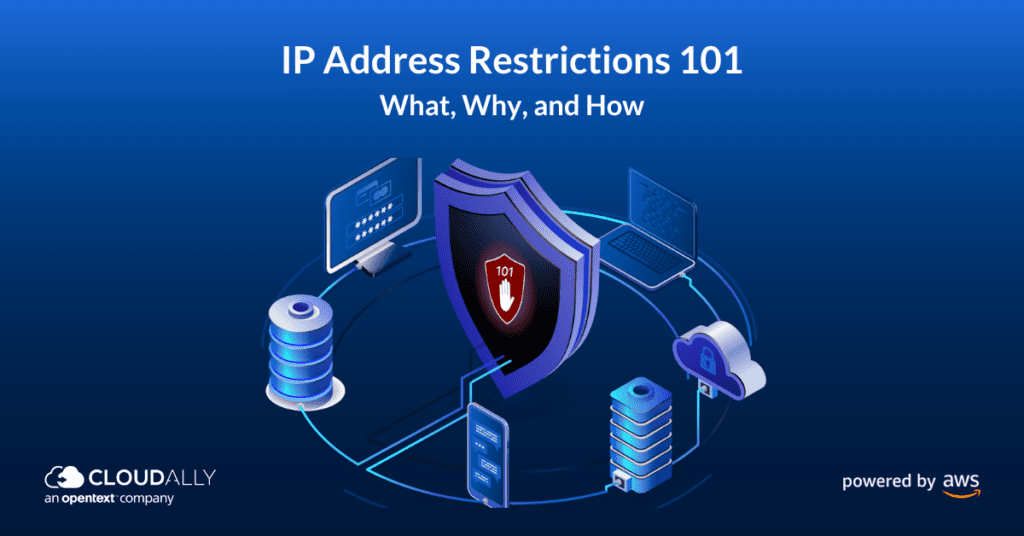IP address restrictions are a great way to improve access control for your business. This is especially true for Managed Service Providers (MSPs). To safeguard the consoles for the multiple services you provide, it’s critical to ensure that only users from a specific network have access to it. By limiting access to particular IP addresses, only authorized users will be able to gain entry to your website or network. This blog post will discuss the benefits of IP address restrictions and how you can set them up for your MSP business.
What Are IP Address Restrictions?
IP address restrictions, also known as IP whitelisting, is the process of specifying which IP addresses are allowed to access a particular resource. This can be done for both inbound and outbound traffic. For businesses, IP address restrictions provide an extra layer of security by ensuring that only authorized users can access sensitive data or resources.
Benefits of IP Address Restrictions: Access Control, Improved Security, and Performance
IP address restrictions can help improve access control for your business by limiting access to specific IP addresses. This ensures that only authorized users can gain entry to your website or network. In addition, IP address restrictions provide an extra layer of security by ensuring that unauthorized users do not access sensitive data or resources.
There are several benefits to implementing IP address restrictions, including:
Improved Security: By restricting access to specific IP addresses, you can enhance the security of your data and resources. This is especially important for businesses that handle sensitive data.
Reduced Costs: Implementing IP address restrictions can help reduce costs associated with managing access control.
Improved Performance: IP address restrictions can help improve the performance of your network by reducing the amount of traffic allowed to access it.
How to Set Up IP Address Restrictions
You can set up IP address restrictions in several ways, such as using a web application firewall, configuring your router, or creating an .htaccess file. Let’s take a closer look at each of these methods:
Web Application Firewall
A web application firewall (WAF) is a system that filters, monitors, and blocks incoming traffic to a website or application. This type of firewall can be either hardware- or software-based. WAFs are often used to protect against common web-based attacks, such as SQL injection and cross-site scripting (XSS).
Configuring Your Router
IP address restrictions can also be implemented by configuring your router. This will allow you to specify which IP addresses are allowed to access your network. To do this, you will need to log into your router’s management interface and add the IP addresses that you want to allow access to.
Creating an .htaccess File
Using an Apache server, you can set up IP address restrictions by creating an .htaccess file. This file will contain a list of IP addresses allowed to access your website. To do this, you will need to edit the .htaccess file on your server and add the following lines of code:
- Order deny,allow - Allow from IP_ADDRESS
Replace IP_ADDRESS with the IP address that you want to allow access. You can add multiple IP addresses by separating them with a comma.
Enforcing IP Address Restrictions
Once you have IP address restrictions in place, it’s essential to ensure they are enforced. This can be done by monitoring your website or network traffic and looking for any unauthorized access attempts. If you see any attempts from IP addresses that are not on your allowlist, you should block them immediately.
Secure Your Backups with In-Built Access Control Using IP Restrictions
Your customer’s data is only as secure as the backup. CloudAlly Backup’s MSP Backup Partner Portal provides fine-grained access control to your backups with inbuilt provisions to set IP restrictions. MSP partners can restrict access to the Partner Portal based on the user’s IP address. This is especially helpful in enforcing security policies and preventing unauthorized access by limiting backup/restore requests to company-approved IP addresses such as an office IP or a particular VPN.
Create an approved list of trusted IP addresses, and block anyone trying to log in using any other address. You can restrict both individual IP addresses and a range of addresses.
Read step-by-step instructions to set up IP address restrictions or watch the video below.
Book a demo or get a free trial of CloudAlly’s partner-driven backup that includes a Partner Portal for unified customer management, white-label OEM backup, a dedicated PartnerZone with marketing and sales collateral, and special partner pricing.




